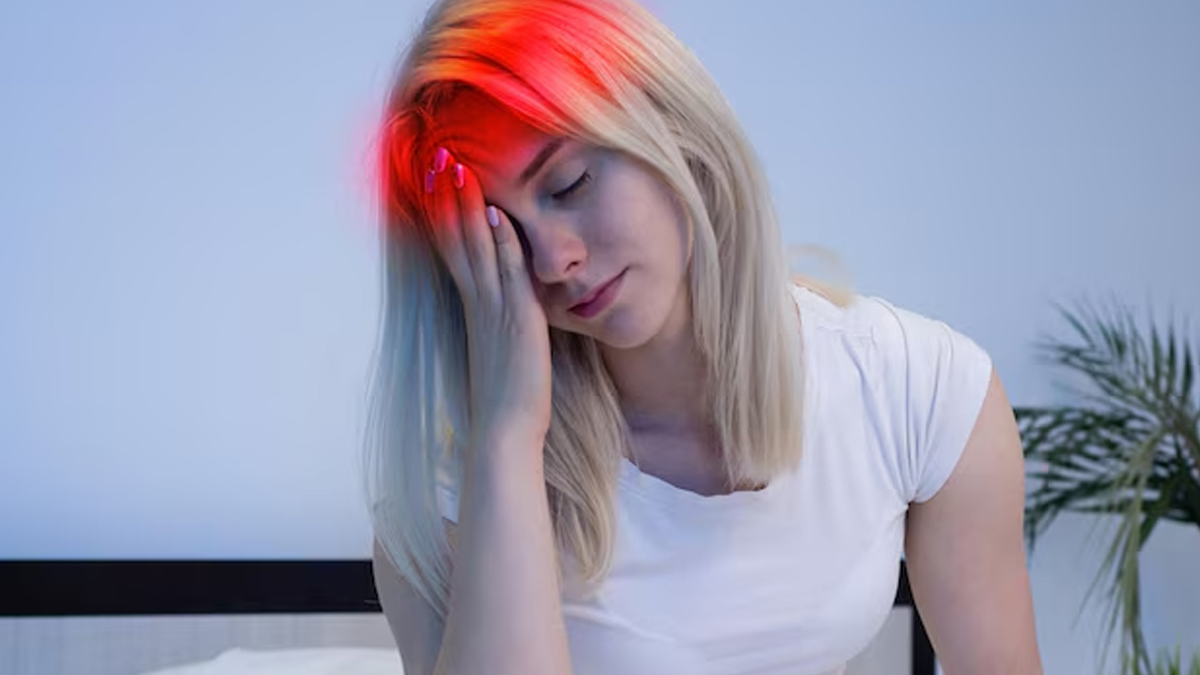
Urvashi Singh (name changed), a 31-year-old corporate employee, led a very pain-free menstrual journey in her 20s. While mild bloating was common and manageable, headaches during menstruation became more frequent as she entered her 30s. At first she could not connect the dots. But over time, she realised these were what medical professionals called menstrual migraines.
Table of Content:-
Speaking with the OnlyMyHealth team, Dr Mahua Bhattacharya, Obstetrician and Gynaecologist, Fortis Hospital, Kolkata, explained what menstrual migraines are, what causes them, and how one can effectively manage them.
Also Read: Managing Menstrual Migraine After 30: Tips for Navigating Migraine During Menopause
What Causes A Menstrual Migraine?

Menstrual migraine is a type of migraine headache that specifically occurs around the time of menstruation. It is characterised by migraine attacks that happen within a defined window around menstruation, typically starting two days before the first day of menstrual bleeding and ending up to the third day of bleeding.
Researchers at Georgetown University Medical Center and Pfizer, Inc. found that a third of the nearly 20 million women who participated in a national health survey reported migraines during menstruation. What's more is that 11.8 million, or 52.5% of the total participants, were premenopausal.
“Menstrual migraines are mostly caused by changes in the oestrogen level during the menstrual cycle,” explained Dr Bhattacharya, adding that a decrease in oestrogen that happens prior to menstruation is a major trigger. “The decrease in oestrogen can sensitise pain receptors and dilate blood vessels to cause migraine pain,” she shared further.
Menstrual Migraine Vs. Normal Migraine

Menstrual migraines are similar to migraine headaches. However, they are caused by hormonal shifts that occur during or prior to menstruation. According to Dr Bhattacharya, key differences lie in the timing, severity, and associated symptoms.
Menstrual migraines are often more intense than non-menstrual migraines, and the treatments may respond better to hormone-specific or preventive therapies. Additionally, while menstrual migraine symptoms can be similar to typical migraines, they can be more severe or include distinct symptoms.
Other common symptoms of menstruation include:
- Cramps
- Lower back pain
- Bloating
- Breast tenderness
- Fatigue
- Food cravings
- Acne
- Joint pain
- Mood swings
- Irritability
- Difficulty sleeping
Also Read: 60% of Women Suffer From Menstrual Migraine, Obstetrician Explains Possible Reasons
How To Manage Menstrual Migraines

For menstrual migraines, both short-term preventive medications and hormonal therapies can be effective. “Triptans like frovatriptan, naratriptan, and zolmitriptan, started before the expected migraine onset, can help prevent or reduce the severity of menstrual migraines. Hormonal strategies, such as using oestrogen supplements or continuous birth control pills, can also be considered to manage the oestrogen fluctuations that trigger these migraines,” shared Dr Bhattacharya.
In addition, dietary and lifestyle changes can be helpful in reducing the frequency of menstrual migraines. These changes include maintaining a regular sleep schedule, managing stress, staying hydrated, and making adjustments to diet, such as avoiding potential trigger foods and ensuring regular, balanced meals.
When To See A Doctor
Dr Bhattacharya recommends seeing a doctor when menstrual migraines are severe, frequent, or not well controlled with first-line treatment. “This would include situations where the headaches are interfering with everyday tasks, happening more than 15 days a month, or when the medication isn't helping.”
She adds that a neurologist should also be consulted for headaches that are sudden and severe, headaches that are linked to neurological symptoms (like weakness, confusion, or changes in vision), or headaches that occur after a head injury.
Conclusion
Menstrual migraines aren’t just some bad headaches; they can ruin your entire day, or even week. If you're someone who notices headaches that seem to show up with your period every month, you're not alone. The good news is it can be managed. Whether it’s through medication, lifestyle tweaks, or hormone management, there are ways to ease the pain and take back control. And if things feel too overwhelming, talking to a doctor can be the first step toward feeling better.
Also watch this video
How we keep this article up to date:
We work with experts and keep a close eye on the latest in health and wellness. Whenever there is a new research or helpful information, we update our articles with accurate and useful advice.
Current Version